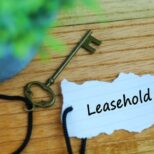
Site assembly for commercial development
7th April 2021 by Mark Preece
If you have a great idea for developing a piece of unused land, you may find that you need to get control of some neighbouring property to provide access or just to make the development large enough to be financially viable. Assembling a site can be time-consuming, so it helps if you know what to expect before you start.
‘Putting a development site together can be like doing a jigsaw,’ says Mark Preece, who heads up Laceys Commercial Property team. ‘The difference is that you will need to buy the missing pieces from other people, and it may not always be obvious who owns them.’
How much land do you need?
Start with a clear plan for what you want to build, how much it is likely to cost and what you can expect by way of return. This is the time to look at all the possibilities. The first question is whether you are likely to get planning permission. Local and national planning policy will dictate things like density of occupation and how much space you should allow for facilities such as parking, electric vehicle charging and possibly public open space. These could impact on the financial viability of the project and may mean you need additional land.
Access is also a crucial consideration and is one of the most common reasons for developers needing to buy neighbouring land.
The other thing to look out for is whether any parts of your site are affected by covenants restricting use. The Supreme Court recently decided that a developer acted unlawfully when affordable houses were built on a part of a site which was subject to a restrictive covenant against building. As well as picking up significant legal costs, the developer may now be forced to demolish the houses.
If there are any restrictions, you may need to design your development to work around them or acquire additional land.
Who owns the land?
Most land in England and Wales is registered at HM Land Registry, which makes it fairly easy for your solicitor to find out who owns it. If any of the land you need for your development is unregistered it is more difficult, and you may have to rely on asking around in the area. Once you know who owns the various parts of your site, you can start negotiating.
Assembling the site
If you are trying to buy several bits of land, you will need a strategic approach. You want to know you will be able to buy all the parts of your site once you get planning permission, but you may not want to buy them outright until you are certain that your development can go ahead. This is where you need to involve your solicitor who can advise on conditional contracts or option agreements.
A conditional contract means the buyer and seller are committed to the sale but only if the agreed conditions are met. Developers often enter into contracts to buy land which are conditional on planning permission being granted for the proposed development.
An option is different and gives the buyer more flexibility. Instead of being committed to buy the land when conditions are met, the developer can choose whether or not to exercise the option to buy it. This can be really useful if, for example, you are not sure whether or not you will need to use a particular piece of land as part of your development. To get this flexibility, you may have to pay an advance option fee to the landowner and possibly agree to give them a share of the profit from the completed development.
It is crucial to get the drafting of options and conditional contracts right, so if this is what you have in mind, make sure you give your solicitor clear instructions about what you want to achieve.
If you are dealing with a number of landowners, you may also need to consider confidentiality provisions, to avoid the owner of the final piece of the jigsaw exploiting their position by wanting more money as a kind of ransom.
How we can help
From finding out who owns land to drafting and negotiating complex contracts and options, your solicitor will be a valuable partner in any site assembly project. Planning a development and assembling a site hold many pitfalls for the unwary and can lead to expensive legal disputes. Getting the right advice on strategy and legal drafting could make all the difference.
If you would like further advice on commercial developments please contact Mark Preece in confidence on 01202 557256 or email m.preece@laceyssolicitors.co.uk



